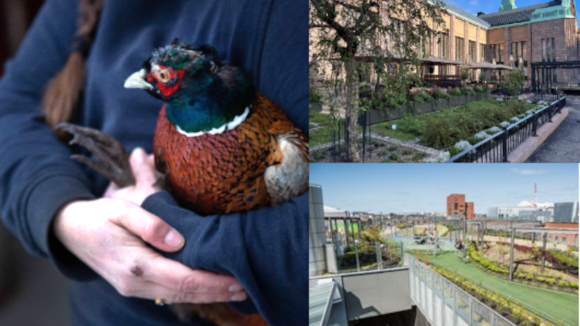 David Schlosberg, PhD, University of Sydney, Australia
David Schlosberg, PhD, University of Sydney, Australia
David Schlosberg is Director of the Sydney Environment Institute and Professor of Environmental Politics at the University of Sydney, and the 2024 Erkko Visiting Professor of Studies in Contemporary Society at the Helsinki Collegium for Advanced Studies. Schlosberg’s main theoretical interests are in environmental politics, environmental movements, and political theory, and in particular the intersection of the three with his groundbreaking work on environmental, ecological, and multispecies justice. His other theoretical interests are in climate justice, climate adaptation and resilience, and environmental movements and the practices of everyday life. Professor Schlosberg’s more applied work includes justice in adaptation and resilience planning, community-based food movements and policy, and community-based responses to climate disasters. He is the author, co-author, and co-editor of numerous books, including Defining Environmental Justice (Oxford, 2007), Sustainable Materialism: Environmental Movements and the Politics of Everyday Life (Oxford 2019), and the forthcoming Institutionalising Multispecies Justice (Cambridge 2024).
 Christopher Raymond, PhD, University of Helsinki, Finland
Christopher Raymond, PhD, University of Helsinki, Finland
Christopher Raymond is Professor of Sustainability Science at the Helsinki Institute of Sustainability Science, University of Helsinki, Finland. His research focuses on conceptualizing the diverse values nature, assessing the co-benefits and costs of nature-based solutions and exploring different dimensions of justice pertinent to urban sustainability. He current leads the Enabling multispecies transitions of cities and regions (MUST) Strategic Research Council project and the Transformative Cities Research Council of Finland project. He is also Executive Director of the International Association for Society and Natural Resources, Leader of the Urban Theme of the Helsinki Institute of Sustainability Science and Associate Editor of npj Urban Sustainability. He supervises seven PhD students, advises on the Global Roadmap on Nature-based Solutions and was the Coordinating Lead Author of the IPBES Values Assessment (2018-2022).
 Nora Fagerholm, PhD, University of Turku, Finland
Nora Fagerholm, PhD, University of Turku, Finland
Nora Fagerholm is Associate Professor in Human-Nature Interactions and Sustainability at the Department of Geography and Geology, University of Turku and Head of the Sustainable Landscape Systems Research Group. Her research focuses on participatory spatial planning and applying a geospatial approach in place-based assessments of people's perceptions on ecosystem services and landscapes. She is the Vice-Director of the Enabling multispecies transitions of cities and regions (MUST) project and Associate Editor of Landscape and Urban Planning. She supervises seven PhD researchers and is a founding member of the Participatory Mapping Institute.
 Pauliina Rautio, PhD, University of Oulu, Finland
Pauliina Rautio, PhD, University of Oulu, Finland
Pauliina Rautio is a Senior Research Fellow in the Faculty of Education and Psychology, University of Oulu. She is an established human-animal studies scholar focusing on multispecies education, inclusive ecological citizen science and co-creative methods. Rautio leads a transdisciplinary research group AniMate (est. 2016) and is a Principal Investigator of three funded projects on multispecies everyday lives: Citizens with Rats (Finnish Research Council, 2020-2024), Fellow Feelings (Eudaimonia institute, 2022-2025), and (Un)learning with other species as part of a major consortium MUST - Enabling multispecies transitions of cities and regions (Strategic Research Council, 2023-2026, PI Christopher Raymond). Rautio is a senior researcher in the Biodiverse Anthropocenes research programme at University of Oulu, Finland, an Editor-in-Chief of a peer-reviewed open access journal for human-animal studies Trace, and a board member of the Finnish Society for Human-Animal Studies. She currently supervises 10 doctoral researchers on environmental and multispecies topics, is a vice member of the Farm animal welfare council (Ministry of Agriculture, Finland) and runs a wildlife rehabilitation centre for injured wild birds at her home.

